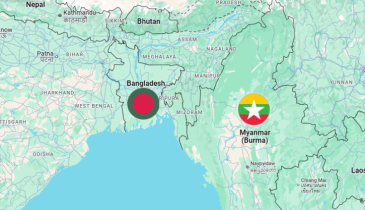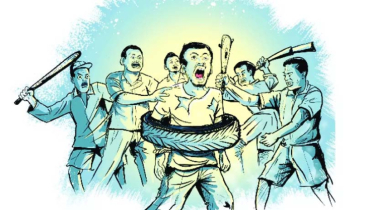Ethnic unrest will be our undoing

The recently aggravated ethnic tensions in Bangladesh’s Chittagong Hill Tracts (CHT) between the Bengalis and ethnic minorities have presented the country with a set of new political, social, and security challenges. Since the country is already in turmoil as a result of the recent political upheaval, the conflict in the CHT adds a threat to the country’s socio-political stability, and so it requires prompt, just, and equitable solutions.
The CHT is the only region in Bangladesh where ethnic minorities constitute a substantial part of the population, and where the political structure is somewhat different from the rest of the country. Between 1977 and 1997, an insurgency by ethnic minorities rocked the CHT, and the two-decades-long insurgency was contained through the conclusion of the CHT Peace Accord on December 2, 1997. However, many of the root causes of the problem remained unaddressed and unresolved.
Accordingly, the inter-ethnic issues between the Bengalis and the ethnic indigenous population in the CHT have not been fully resolved. In 2022, the Kuki-Chin National Front (KNF) initiated a new insurgency in the CHT, starting a new wave of destabilization in the region, and the recent interethnic clashes in the region added to the destabilization.
As a developing state confronted with numerous socio-economic challenges, Bangladesh cannot afford to allow the spread of inter-ethnic conflict in one of its more sensitive border regions. However, the conflict in the CHT cannot be resolved through only security measures, as it requires a political solution, and for this solution to materialize, all stakeholders -- including the government of Bangladesh, the wider Bengali population, the Bengalis in the CHT, and the ethnic communities in the region -- have to demonstrate the political and social will to make a suitable compromise for all.
To begin with, the government of Bangladesh should prioritize the resolution of the conflict in the CHT through political measures and undertake necessary measures to facilitate peace, stability, and interethnic reconciliation in the region. The socio-economic needs of the people of the CHT, regardless of their ethnicity, have to be addressed on a priority basis, and the administration should undertake necessary measures to ensure security for all in the region. Most importantly, the government should fully implement the terms of the CHT Peace Accord.
Additionally, the Bengalis constitute an overwhelming majority of the population of Bangladesh, and as the majority, they have a duty to ensure that the ethnic communities in the country can live in peace, security, and prosperity. They have to understand that the problems in the CHT are rooted primarily in the socio-economic deprivation of the people of the region, and may not be in secessionist tendencies. Hence, they should refrain from reaching premature conclusions about the situation and spreading anti-minority propaganda, particularly on social media.
Furthermore, the Bengalis in the CHT currently constitute roughly half of the region’s population. As they represent the majority ethnic group in the country, they should conduct themselves with restraint and moderation. They should understand that they and their next generations have to co-exist with their immediate neighbors, and so they should strive for better interethnic relations in the region.
Finally, the ethnic minorities in the CHT, including the Chakmas, the Marmas, Bawm, and the Tripuras, have to realize that as citizens of Bangladesh, they have their share of duties to perform. While it is true that some provisions of the CHT Peace Accord remain unfulfilled, and the government of Bangladesh adopts measures to rectify the situation, the ethnic minorities should also uphold their part of the peace treaty by fully surrendering all illegal arms and ammunition to the administration.
They often claim that the Bengalis in the CHT are “settlers.” However, most Bengalis in the region have been living there for decades. Regardless of any term accrued to them, that they are living in the hill tracts alongside the ethnic communities is a reality that no one can deny. And just as the Chakmas, the Marmas, and the other minorities have a right to live anywhere in Bangladesh, this Bengali community also has a right to live with dignity and peace in the CHT.
Moreover, the Bengalis in the CHT are largely politically disenfranchised, as they have less political representation at the Jatiya Sangsad and the Hill District Councils than the ethnic minorities. Hence, the Chakmas, the Marmas, and the other ethnicities of the CHT should refrain from resorting to extremist claims or measures and should take an active part in the reconciliation process.
The Bengalis and the ethnic minorities in the CHT are all citizens of Bangladesh, and they have no way but to coexist with one another if they wish to see the CHT as a peaceful, secure, and prosperous region. Any attempt to create a divide or any attempt of “othering” between them would only take a toll on their peaceful co-existence as well as their peaceful living. The interim government, the political parties, civil society organizations, and the Bengali and minority social and political organizations in the CHT should join hands to foster interethnic conciliation in the region based on justice, equity, moderation, and common humanity. -Source: dhaka tribune
.png)









